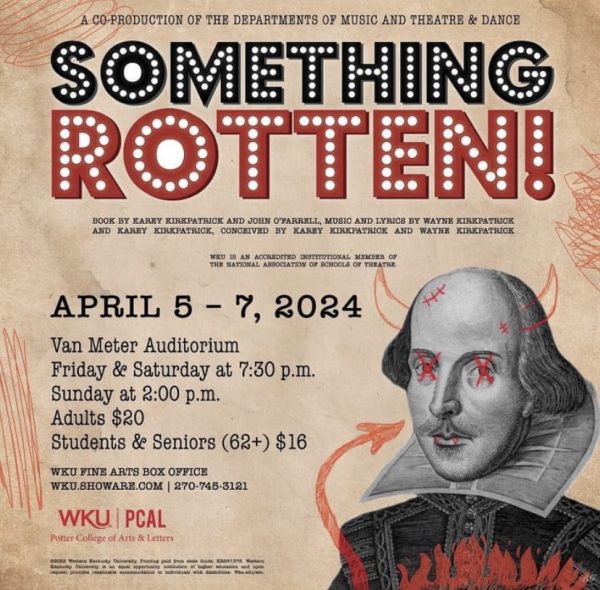English professor experiences contribute to writing
May 1, 2003
Sitting behind a small wooden desk in Cherry Hall, English professor Nancy Roberts encouraged students in her Wednesday night Fiction Writing class to incorporate their own personal experiences into their short stories.
“You folks need to trust your own lives,” Roberts said while swinging her arms in emphasis. “Your lives are so interesting.
If experience oozes good story ideas, Roberts, who has taught creative writing at Western since 1996, has more than her share to write about.
Traveling around
Roberts was born on April 9, 1941, in Mill Valley, Calif., and spent most of her childhood living the life of a nomad. Her father was stationed in the army at Tennessee and was relocated several times. She lived in places all over the world, from Washington D.C. to Germany.
Like most children, Roberts had many positive and negative experiences in her youth, but she looks back fondly at them all.
“It’s safe to say every single experience, in terms of adventures or emotional, good or bad, is great because I can use that in my writing,” Roberts said. “Especially my mistakes.”
Roberts said the absolute happiest time in her childhood occurred in the years she attended a country school in northern Wisconsin.
“It was the first time a teacher liked me,” Roberts said.
She said other teachers grew frustrated with her drawing pictures in class and her inability to pay attention.
“I wrote poems all the time,” Roberts said. “And teachers would send home notes that read, ‘Nancy doesn’t apply herself.'”
Traveling on her own
Unlike some of her fellow graduates at Bethesda High School in Maryland, Roberts wasn’t given the opportunity to go to college.
Roberts’ father, who she said was old-fashioned about women, didn’t believe that women should attend college. Instead of starting college, she moved to the Philippines with her family and two brothers.
Eventually, Roberts said her mother persuaded her father to let her attend college for one year. It was her free pass to leave the Philippines.
She went to a college in Illinois. But Roberts, who said she was “ill-suited” and emotionally unfit for the challenges of college, failed out after one semester.
“That’s why, when I see students flunking out, I think ‘Maybe they just aren’t ready,'” she said.
After flunking out of school, Roberts did some more traveling- but this time not as an army brat.
After living in Canada and Long Island, Roberts ended up in New York City in 1964 with a job as a secretary at Macmillan Publishing House. She said she felt the job could lead to greater opportunities.
“I figured since I was a good writer, I could ask for more work and show them what I could do,” Roberts said.
Due to the exaggerated male domination in her childhood, Roberts said she became fanatic about women’s rights and wrote a book about eliminating sexism and racism in textbooks.
She wrote the book “Positive Guidelines for Creating Positive Sexual and Racial Images in Educational Material” to make people aware of subtle examples and uses of language that were discriminatory.
She pointed out that, in math books, women were portrayed as either sewing or grocery shopping while men played sports and solved word problems.
She also founded a women’s group at Macmillan to make the company more aware of women who were not being treated fairly or given the chance to perform to their maximum ability.
Roberts did all this without a college degree.
New places, new experiences
After ten years, Roberts left New York and moved to Oregon. In an attempt to rediscover herself and find a new place to live, Roberts hopped on a Greyhound bus that led her west to Salt Lake City.
She went back to school during the early 1980s at the University of Utah to study creative writing.
This time around, she succeeded in her studies. Roberts finished her undergraduate studies in two years and got a teaching assistantship to pay for her graduate schooling at Utah. She taught English composition, creative writing and women’s studies. She graduated in 1986.
Upon leaving Utah, Roberts taught for a semester at Wichita State University as a visiting writer and later at the University of Illinois for seven years before arriving in Bowling Green.
Roberts said ending up at Western turned out to be one of the best things that could have happened to her.
“I’m just in love with the students,” Roberts said with a smile and a nod. “The talent is awesome here, and in many ways, I feel fortunate.”
Roberts said the negative experiences in her schooling have affected the way she teaches.
“It makes me more understanding of the nature of creative students who can’t always play by the rules,” she said.
Roberts said she believes gifted students often have to go through a struggle before they can blossom.
Danville junior Claudette Johnson said Roberts is an encouraging professor.
“I haven’t had many English teachers with anything positive to say, and I’m an English major,” Johnson said.
Of all the professors she’s had, Johnson said Roberts is one of the few who has encouraged her writing.
Roberts’ writing: ‘gorgeous’
Unlike her childhood days when people condemned her for writing poetry, people now have an interest in what Roberts writes.
While she was at Utah, Roberts entered an early version of her short story collection in the Utah Arts Council competition and won. These short stories were later published in her 1987 anthology titled, “Women and Other Bodies of Water.”
Roberts said the judge told her that she wanted to reward the “recklessness” in her writing because it “was charged with electricity.”
In the mid 90s, Roberts placed second in the Associated Writing Program competition for her novel “Deep Water Moon.” She was the first novelist to be chosen in ten years.
Roberts has been trying hard to get “Deep Water Moon” published, but she said it is difficult to get a literary novel published.
“I kind of know my work must be good, though,” Roberts said. “It’s been validated.”
She has had numerous short stories published in various journals, such as the Gettysburg Review, the North American Review and Ploughshares.
Her colleagues at Western, like English professor Dale Rigby, think highly of Roberts’ work.
“Her language is gorgeous,” Rigby said. “The meaning of her stories is more beneath the surface in her.”
He said it’s the images and carefully chosen words that make her writing “gorgeous.”
“When I think of Nancy, it’s how she blooms when she’s up in front reading her stories,” Rigby said. “It’s where she’s meant to be. Her face just explodes into sunshine.”
Roberts has led an eventful life, a life full of stories begging to be shared.
But using life experiences isn’t the only way to be a good writer.
“You don’t need a lot of experiences,” Roberts said. “You just need to look at what you experienced well.”
Reach Lindsay Sainlar at [email protected]











![Students cheer for Senator at Large Jaden Marshall after being announced as the Intercultural Student Engagement Center Senator for the 24th Senate on Wednesday, April 17 in the Senate Chamber in DSU. Ive done everything in my power, Ive said it 100 times, to be for the students, Marshall said. So, not only to win, but to hear that reaction for me by the other students is just something that shows people actually care about me [and] really support me.](https://wkuherald.com/wp-content/uploads/2024/04/jadenmarshall-1200x844.jpg)






![Megan Inman of Tennessee cries after embracing Drag performer and transgender advocate Jasmine St. James at the 9th Annual WKU Housing and Residence Life Drag Show at Knicely Conference Center on April 4, 2024. “[The community] was so warm and welcoming when I came out, if it wasn’t for the queens I wouldn’t be here,” Inman said.](https://wkuherald.com/wp-content/uploads/2024/04/smith_von_drag_3-600x419.jpg)






